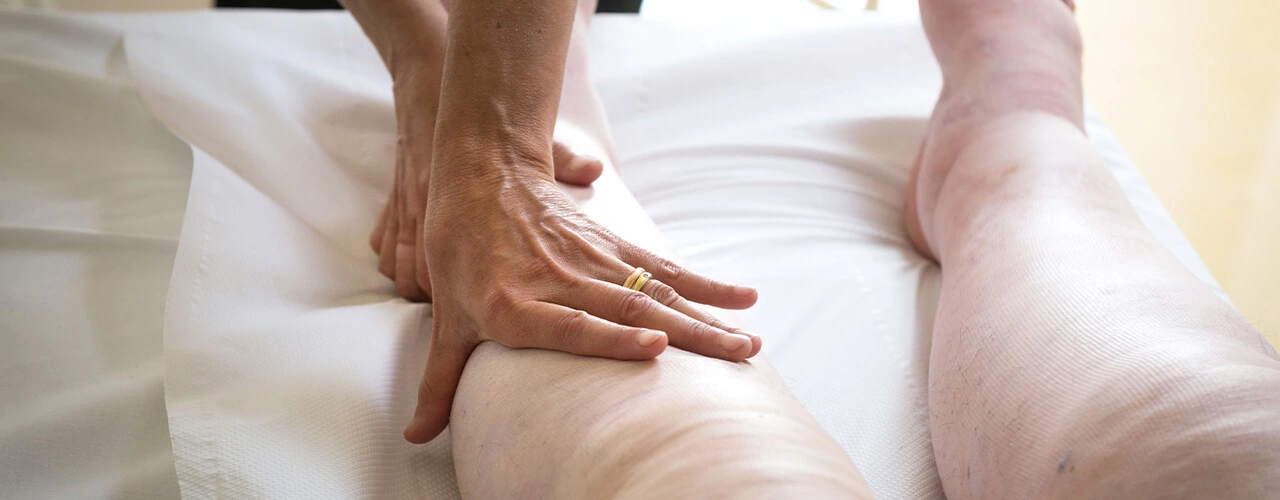Understanding the Causes of Swollen Legs
Swollen legs can be caused by various factors that range from minor to severe. In some cases, it could be due to sitting or standing for long periods, while in others, it may indicate a more serious health issue. To effectively address this condition, it's crucial to understand the possible causes behind it. Some common reasons for leg swelling include:
1. Poor circulation: Blood flow may be restricted due to various factors such as obesity, sedentary lifestyle, or even wearing tight clothing.
2. Injuries: Sprains, strains, and fractures can lead to swelling in the affected area.
3. Infections: Bacterial or fungal infections can cause inflammation and swelling in the legs.
4. Kidney, liver, or heart problems: These medical conditions can lead to fluid retention in the body, resulting in leg swelling.
5. Pregnancy: Pregnant women often experience leg swelling due to increased blood volume and hormonal changes.
Recognizing the Complications of Swollen Legs
It's essential to be aware of the potential complications that can arise from prolonged leg swelling. Ignoring this condition can lead to severe health issues and reduced mobility. Some common complications associated with swollen legs include:
1. Skin changes: Continuous swelling can cause the skin to become discolored, itchy, and even break down, leading to ulcers.
2. Infections: Open sores or ulcers can result in bacterial infections that require immediate medical attention.
3. Blood clots: Prolonged swelling can increase the risk of developing blood clots in the legs, a condition known as deep vein thrombosis (DVT).
4. Lymphedema: This condition occurs when the lymphatic system is unable to properly drain fluid, leading to chronic swelling.
5. Mobility issues: Severe swelling can make it difficult to move around and perform daily activities.
Seeking Medical Advice for Swollen Legs
Consulting a healthcare professional is crucial if you notice persistent leg swelling, especially if it's accompanied by other symptoms such as pain, redness, or warmth. Your doctor will evaluate your condition and recommend appropriate diagnostic tests to identify the underlying cause. These tests may include blood tests, imaging studies, or even a biopsy in some cases.
Remember, early detection and treatment can help prevent complications and improve your quality of life. Don't hesitate to seek medical advice if you're concerned about your leg swelling.
Exploring Treatment Options for Swollen Legs
Treatment for swollen legs depends on the underlying cause. Your doctor will recommend a personalized treatment plan based on your specific needs. Some common treatment options include:
1. Medications: Diuretics, anti-inflammatory drugs, or antibiotics may be prescribed to help reduce swelling and treat any infections.
2. Compression therapy: Wearing compression stockings can help improve blood flow and reduce swelling in the legs.
3. Elevation: Elevating the legs above heart level can help alleviate swelling caused by gravity.
4. Exercise: Regular physical activity can improve circulation and reduce leg swelling.
5. Dietary changes: Reducing salt intake and maintaining a healthy diet can help prevent fluid retention in the body.
Preventing Swollen Legs: Tips for a Healthier Lifestyle
Adopting healthy habits can go a long way in preventing leg swelling and improving your overall well-being. Here are some tips to help you maintain healthy legs:
1. Stay active: Engage in regular physical activities such as walking, swimming, or yoga to improve circulation.
2. Maintain a healthy weight: Obesity can put extra pressure on the legs and contribute to swelling.
3. Avoid standing or sitting for long periods: Take breaks to move around and stretch your legs.
4. Wear comfortable footwear: Choose shoes that provide good support and avoid wearing tight, restrictive clothing.
5. Stay hydrated: Drinking plenty of water can help flush out excess fluids and reduce swelling.
By following these tips and seeking timely medical advice, you can effectively manage and prevent swollen legs, ensuring a healthier and more comfortable life.





Hey folks, I just wanted to share why staying active can totally change the way your legss feel.
When you move around, blood keeps flowing and fluid doesnt pool in your calves.
Even a short walk every few hours can make a big difference.
Try simple ankle pumps while you sit at your desk.
Stretching your calves before bed helps the lymphatic system do its job.
And don’t forget to drink plenty of water, it flushes excess fluid out of your system.
Reducing salty snacks can also keep swelling at bay.
If you have a job that makes you stand all day, pop on a pair of compression socks and keep them on for a few hours.
These socks gently squeeze your legs and encourage blood to move back up toward your heart.
Another tip is to elevate your feet while you watch TV, just prop them up on a pillow.
That simple lift uses gravity to push fluid out of your ankles.
For those dealing with chronic conditions, regular low‑impact exercise like swimming works wonders.
It strengthens your muscles without putting too much stress on your joints.
Even yoga poses that stretch the hamstrings can improve circulation.
Remember, the key is consistency – a little bit each day adds up to healthier legs.
I completely agree with the importance of movement and hydration.
In my experience, adding a short walk after meals really helps reduce post‑prandial swelling.
Also, keeping a regular schedule for leg elevation can prevent fluid buildup over time.
Make sure the shoes you wear provide good support; tight footwear can impede circulation.
Overall, small lifestyle tweaks are often enough to make a noticeable difference.
Compression stockings are a simple first step.
Honestly, the advice above sounds like generic fluff that ignores the real triggers like hidden sodium in processed foods and the pharma push for diuretics.
People keep dropping wellness buzzwords while the industry profits from prescription pills.
Unless you cut out the junk and demand transparent labeling, these tips are just a Band‑Aid.
I hear your frustration, but let’s not dismiss practical steps that helped many.
While all this “exercise” talk is nice, you’re ignoring the hidden agenda of big health agencies that downplay the role of water fluoridation on vascular health.
Did you ever notice how the same labs that push sodium‑rich processed foods also fund the studies that claim “compression stockings” are the miracle cure?
It feels like they’re orchestrating a diversion while the true culprits remain invisible.
Stay vigilant, the system is designed to keep us chasing surface solutions.
Totally get where you’re coming from – it’s easy to feel overwhelmed.
One must acknowledge the intricate web of socioeconomic forces that dictate public health narratives, rendering simplistic advice insufficient for the discerning mind.
It is incumbent upon each of us to reject complacency and demand evidence‑based interventions; otherwise, we perpetuate a cycle of neglect that endangers vulnerable populations.